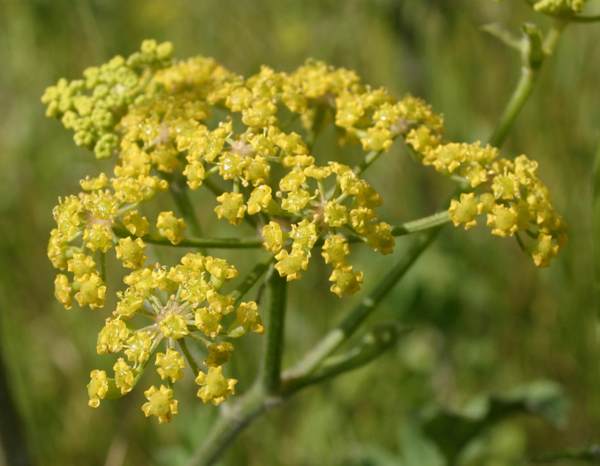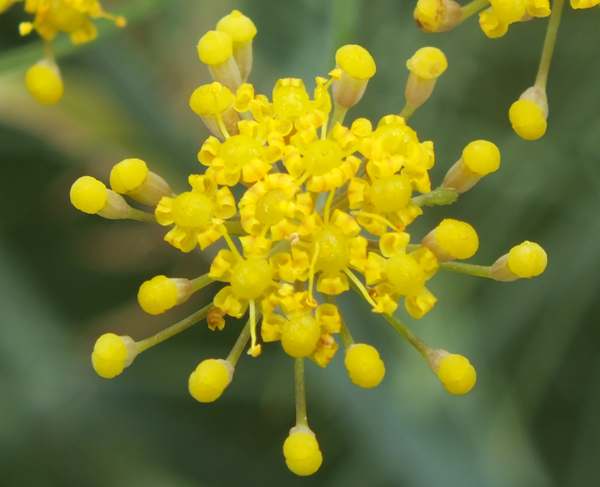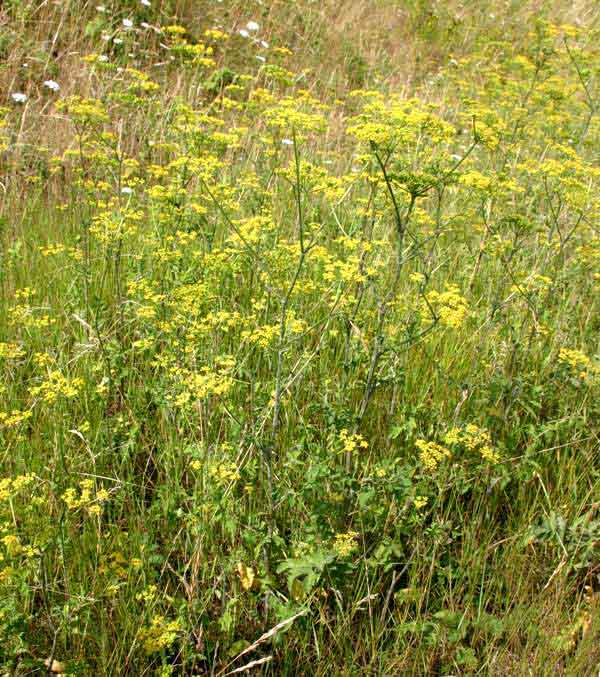Pastinaca sativa - Wild Parsnip
Phylum: Magnoliophyta - Class: Equisetopsida - Order: Apiales - Family: Apiaceae

This biennial plant, a member of the family Apiaceae (the umbellifers), is the progenitor from which cultivated parsnips were derived. In appearance there are slight differences between the wild and cultivated plants, both in the leaves and most notably in the size of the roots, but in fact the roots of Wild Parsnip, although smaller, are also edible.
Habitat
Railway embankments, dry roadside verges and other dry grassy locations are the preferred habitat of this summer-flowering plant, which appears to prefer alkaline soils.

Description
Wild Parsnip can grow to a height of well over a metre and produces dense stands with umbels of bright yellow flowers in its second year.

The leaves are 1-pinate, and the fruits are flattened, roundish with low ridges. Fennel, with which it could be confused, has finely divided feathery leaves.
Sue Parker's latest ebook is a revised and enlarged edition of Wild Orchids in The Burren. Full details here...
Buy it for just £5.95 on Amazon...
Please Help Us: If you have found this information interesting and useful, please consider helping to keep First Nature online by making a small donation towards the web hosting and internet costs.
Any donations over and above the essential running costs will help support the conservation work of Plantlife, the Rivers Trust and charitable botanic gardens - as do author royalties and publisher proceeds from books by Pat and Sue.

